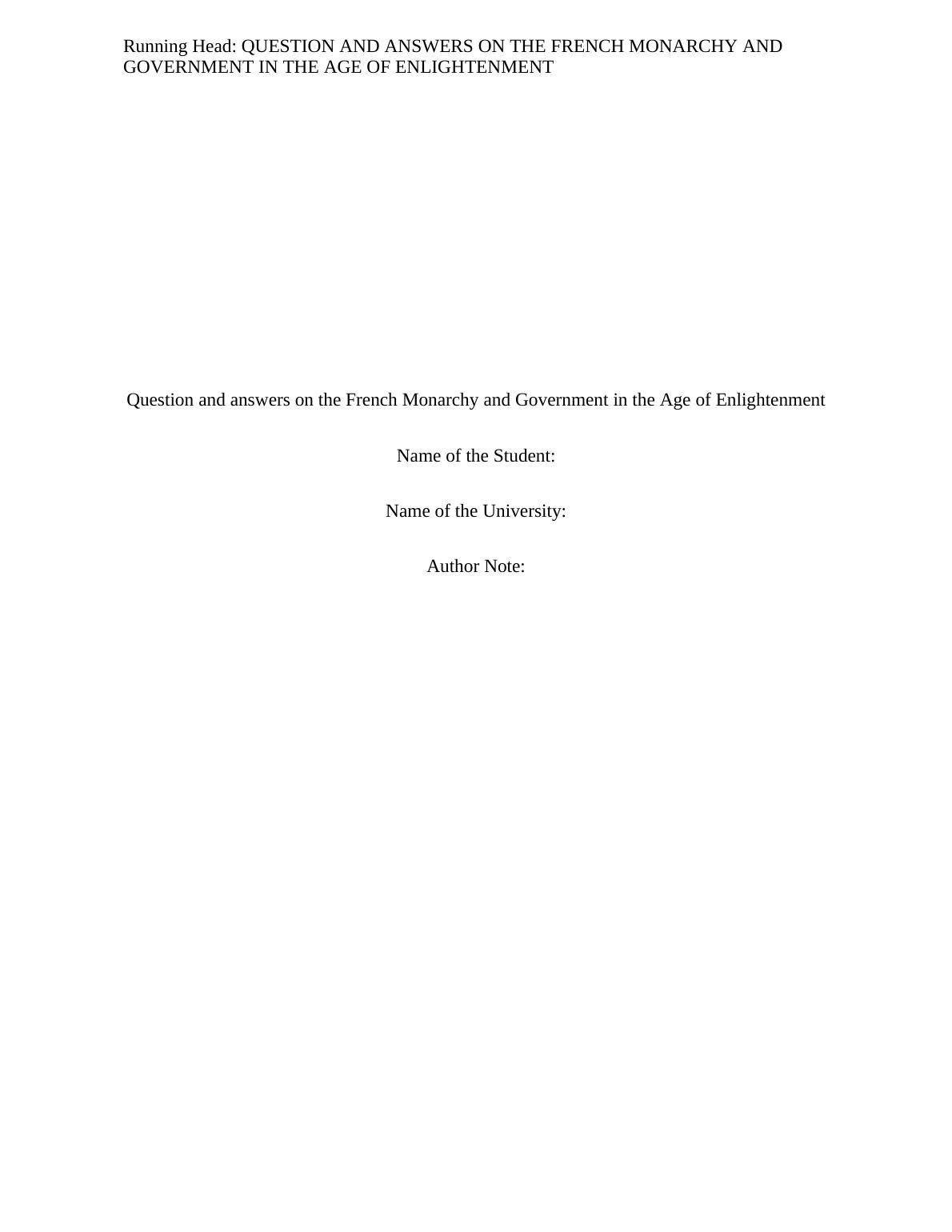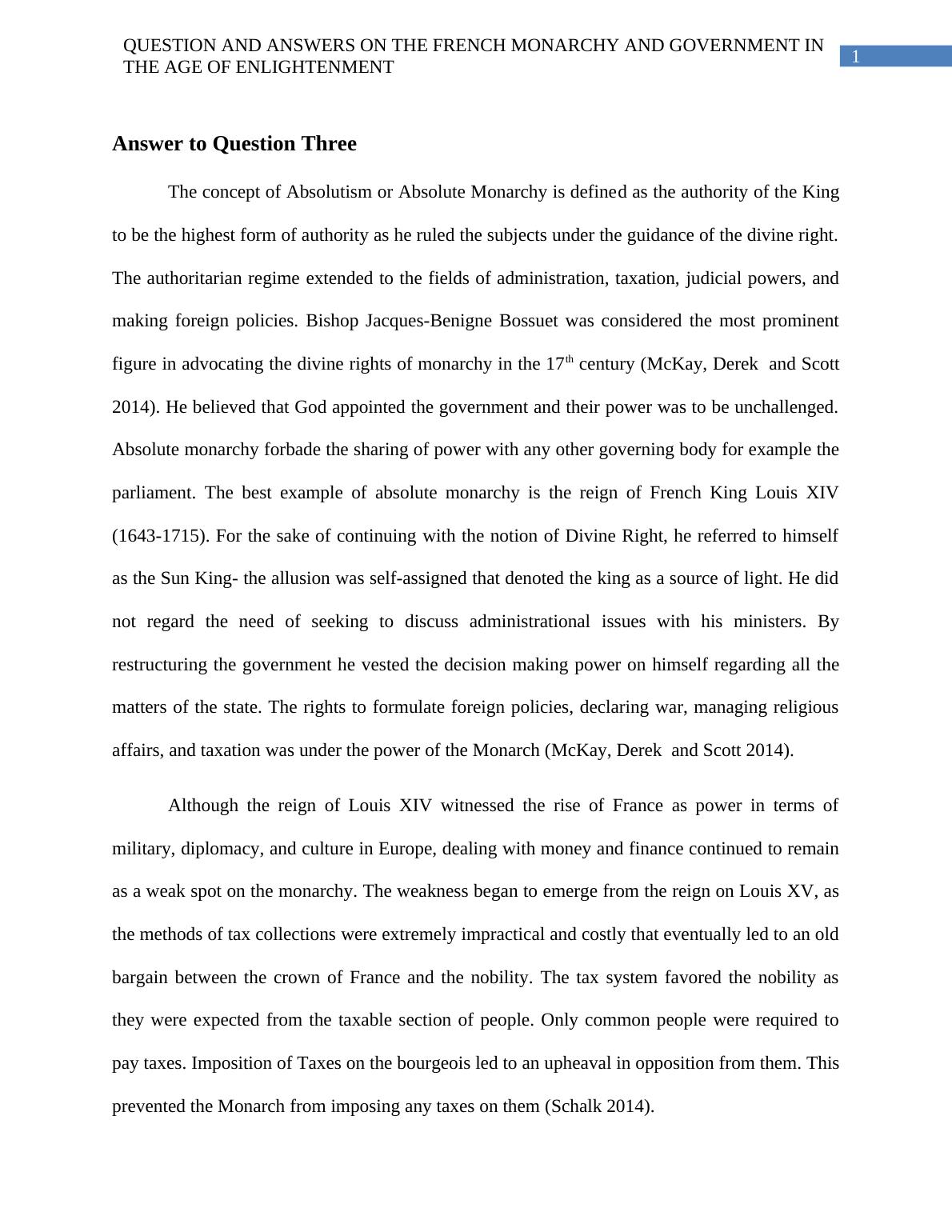French Monarchy and Government
5 Pages1138 Words13 Views
Added on 2022-09-12
French Monarchy and Government
Added on 2022-09-12
ShareRelated Documents
End of preview
Want to access all the pages? Upload your documents or become a member.
The Act of Enlightenment
|4
|604
|218
Essay on French Revolution
|5
|1407
|368
Age of Revolution: Impact of Enlightenment and Napoleonic Rule in Europe
|7
|1951
|118
Liberal Internationalism: Evolution and Crisis
|8
|1832
|60


